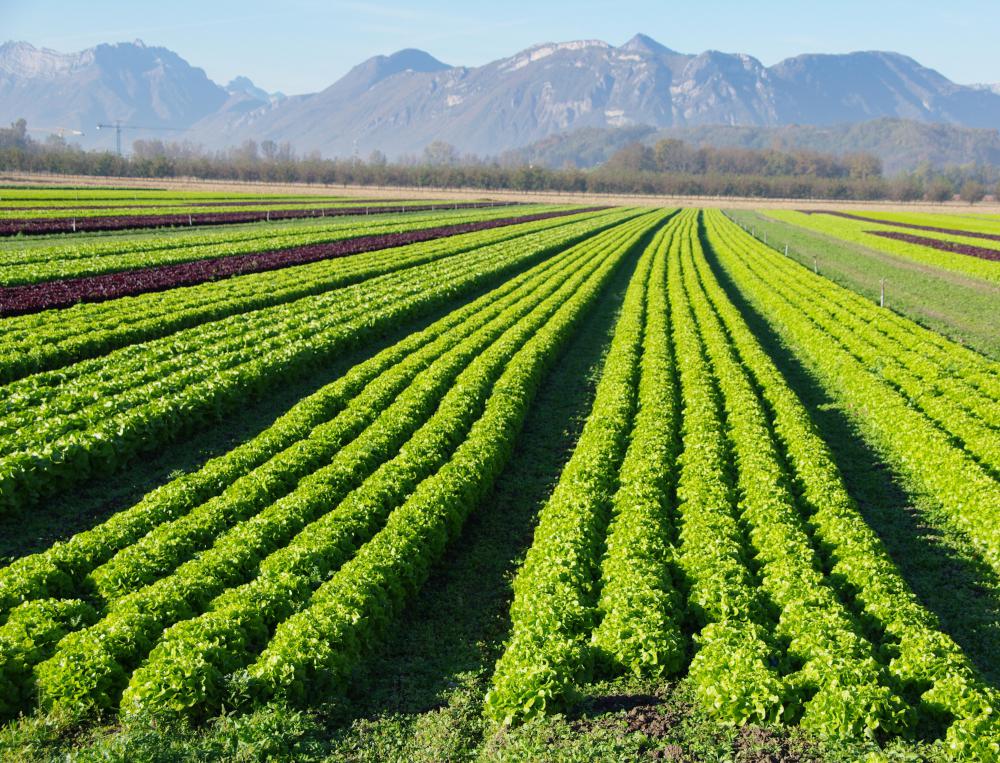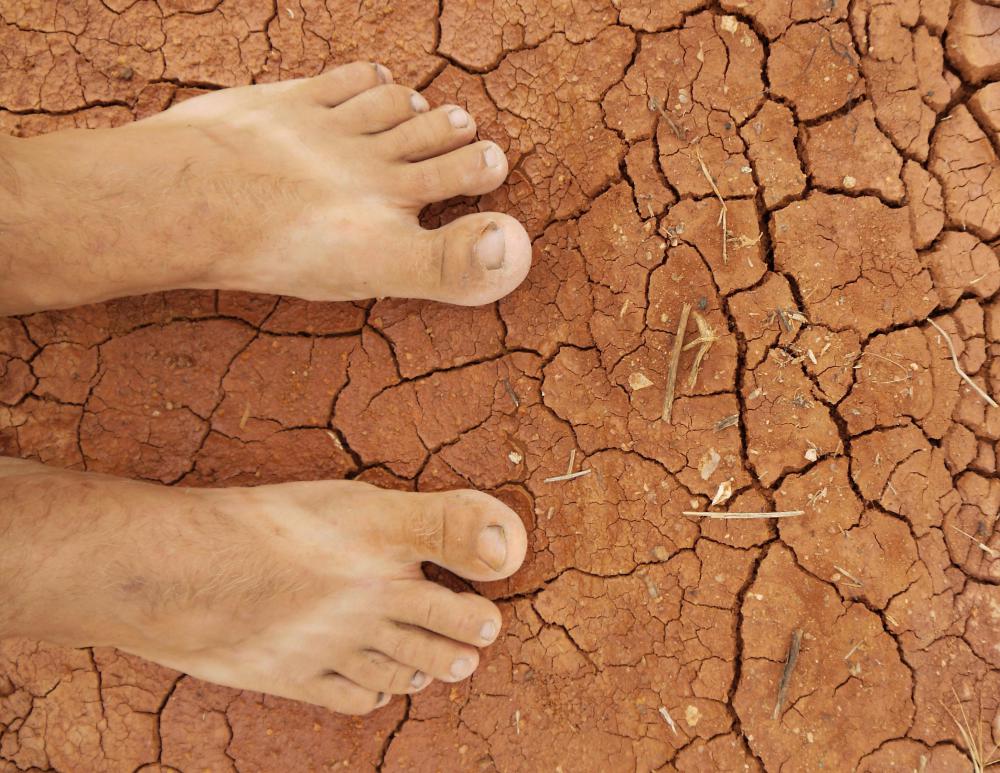At WiseGEEK, we're committed to delivering accurate, trustworthy information. Our expert-authored content is rigorously fact-checked and sourced from credible authorities. Discover how we uphold the highest standards in providing you with reliable knowledge.
What is Sustainable Farming?
Sustainable farming is the idea that any type of farming or agriculture that occurs in the world is done in a way that is intended as sustainable in the long term. This means that farmers and others in agricultural businesses should use methods that take advantage of natural resources while also ensuring that those resources are renewed or kept viable for future generations. Natural resources such as soil, water, sunlight, and air are often considered when trying to ensure sustainability.
Also referred to as sustainable agriculture, sustainable farming is the practice of trying to ensure that future generations will be able to utilize the food sources available today. Specifically, it deals with crops and planted foods handled in a way that seeks to ensure the sustainability of such foods. In general, crops for farming require sunlight, air, water, and soil to grow. Most efforts regarding sustainable farming are directed toward ensuring these four resources will still be available for future generations.

Sunlight and air in sustainable farming are typically connected to the environment in general and pollution specifically. Air pollution can lead to poor quality of air that can potentially have a negative impact on crop growth. It is likely that air pollution will negatively impact other animals, including humans, in many ways beyond farming, so it is often considered a larger concern. Sunlight is typically abundant across the surface of the earth, and any sort of negative impact that reduces sunlight will also be detrimental to mankind in other ways as well.

Specific to sustainable farming, however, water supplies and soil quality are often considered, and typically can be more easily controlled than air quality and sunlight. Crops can usually grow quite well in regions with abundant rainfall and other types of water supplies. In other regions, however, water can be more difficult to utilize for crops and so efforts are being made to ensure better irrigation and similar methods for watering. Soil for sustainable farming is very important and is one of the major factors being considered in regard to sustainability.

Nutrients in soil, such as nitrogen, are essential for healthy crop growth during farming. Harvesting of crops, however, removes some of those nutrients and so land can eventually become unusable for farming. Sustainable farming seeks to reduce this problem through a number of different methods, including crop rotations and the use of organic fertilizers. Research is also being performed regarding cyclical farming that utilizes natural processes to rejuvenate soil, such as the flooding of the Nile River in Egypt. Through the use of these types of methods, soil can be kept healthy and crops can continue to grow for generations to come.
AS FEATURED ON:
AS FEATURED ON:
















Discussion Comments
Sustainable farming in large part focuses on reversing many of the advancements made in farming over the last one hundred years. Man composed fertilizers that were once thought to be the key to producing more and better crops are now shunned by organic sustainable farming operations because the fertilizers are harmful to the environment and in some cases to people.
Livestock farming has moved toward raising more animals in smaller areas over the last several decades. Once considered an positive advancement, the waste created by large housing units for animals such as pigs has proven to be harmful to surrounding communities.
Post your comments